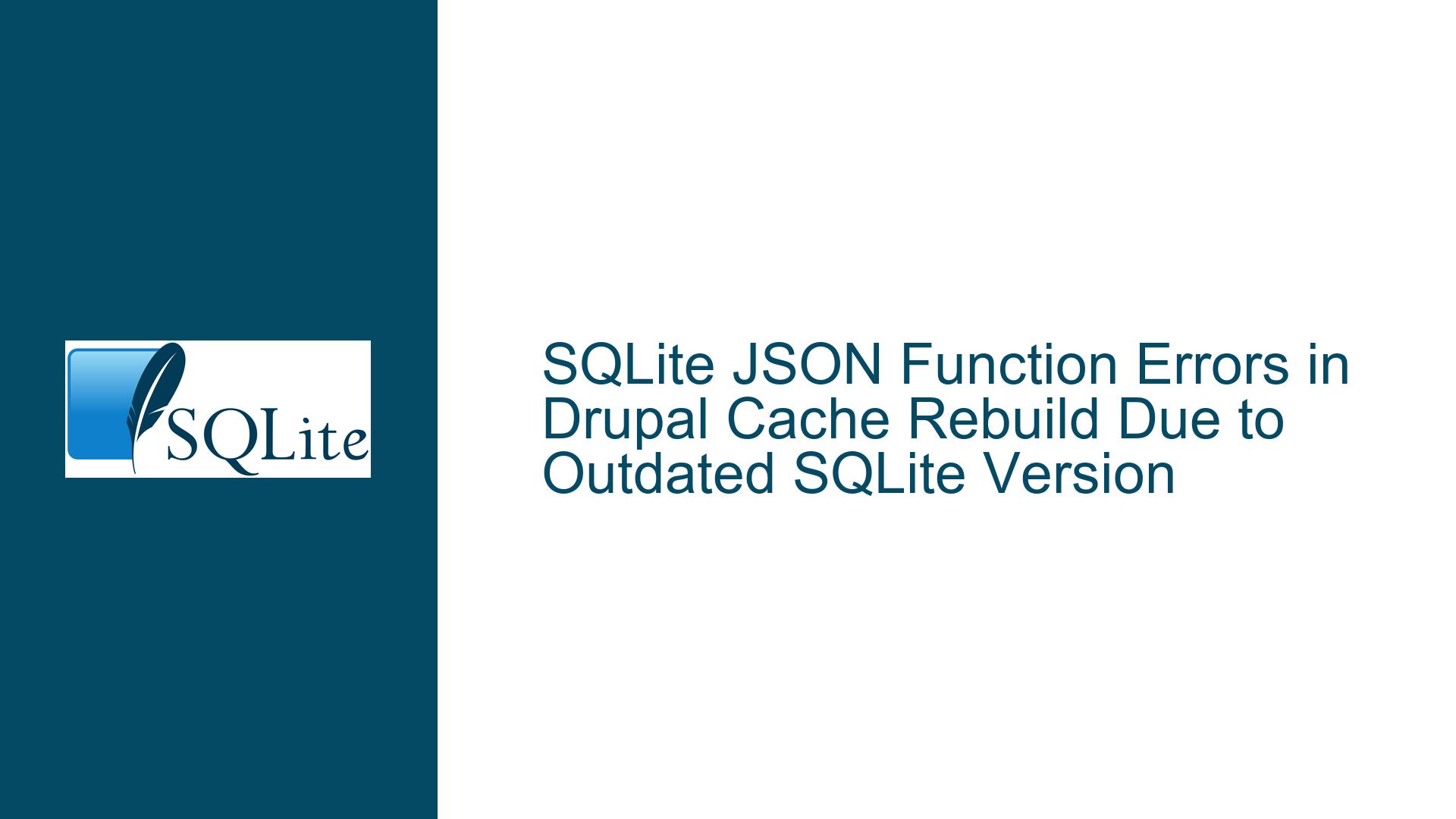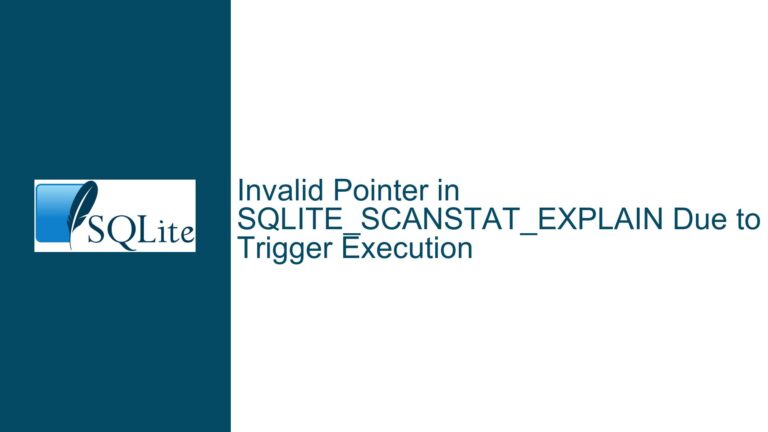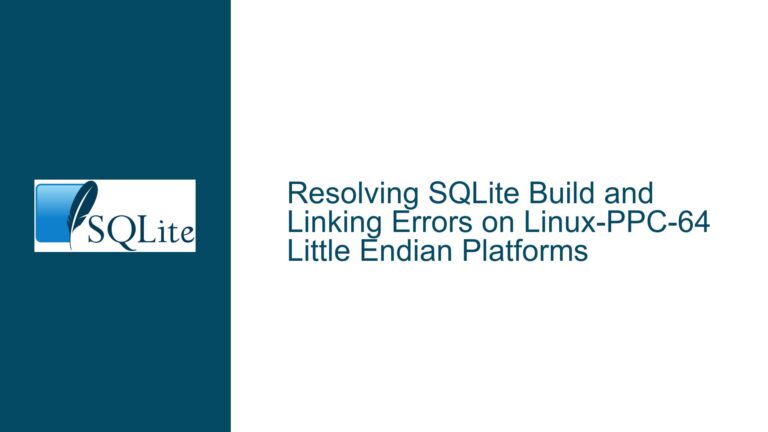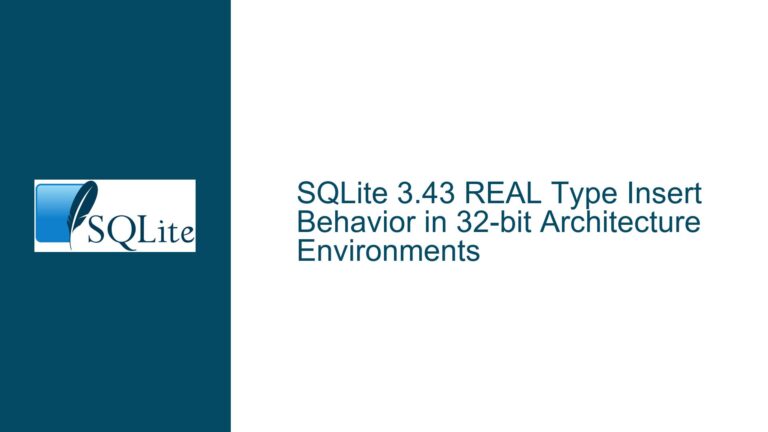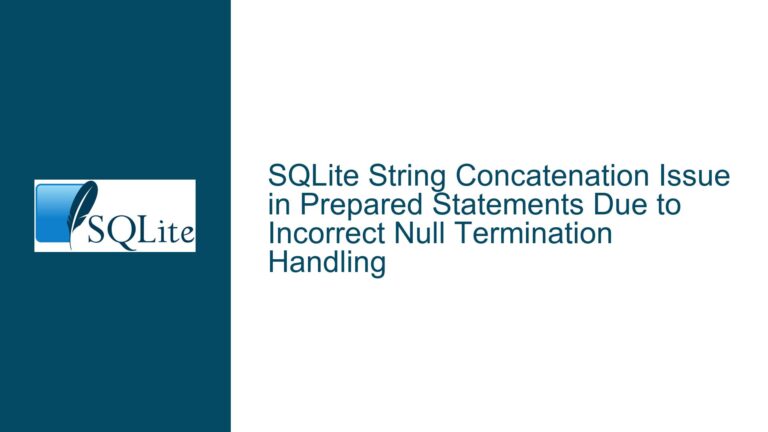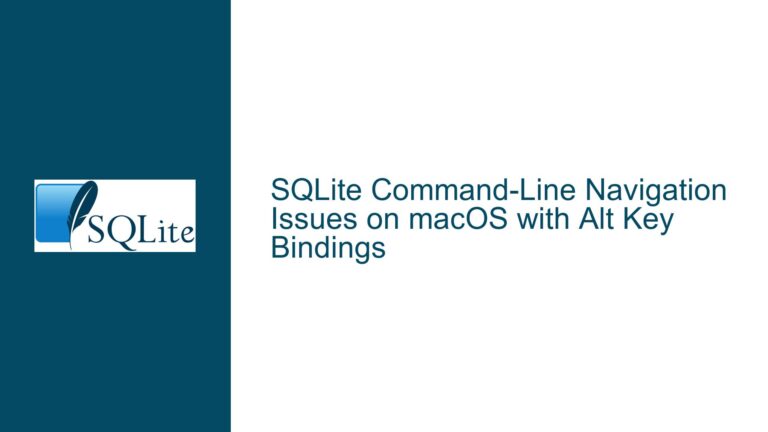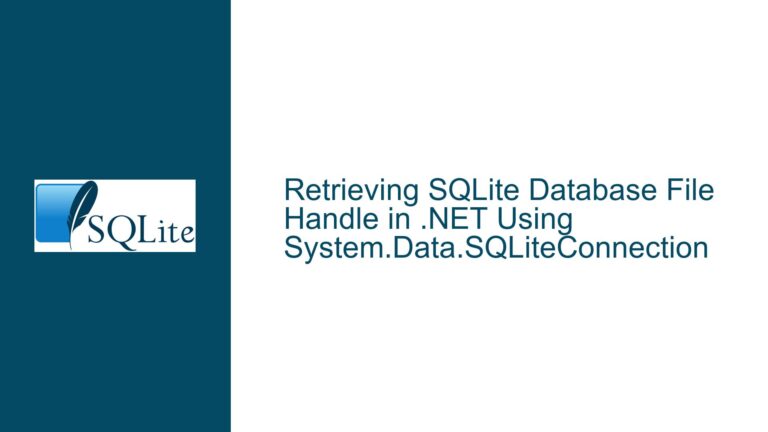SQLite JSON Function Errors in Drupal Cache Rebuild Due to Outdated SQLite Version
SQLite JSON Function Errors During Drupal Cache Rebuild
When attempting to rebuild the cache in a Drupal 8.8.6 installation using SQLite 3.7.17, users encounter a critical error related to JSON functions. The error message indicates a syntax error in an SQL query that attempts to use JSON functions such as json_extract and json_each. These functions are integral to the query that inserts or replaces data into the cache_config table. The error message explicitly points to a syntax issue near the opening parenthesis of the JSON function calls, suggesting that the SQLite version being used does not recognize these functions.
The error manifests in two scenarios: first, during the initial cache rebuild triggered by the Drupal installation process, and second, when manually attempting to rebuild the cache using the drush cr command. The latter also includes an additional error related to Zend OPcache, which, while not directly related to the SQLite issue, further complicates the debugging process. The core issue, however, lies in the SQLite database’s inability to process the JSON functions embedded in the SQL query.
The error message provides a clear indication that the SQLite version in use (3.7.17) is incompatible with the JSON functions required by Drupal. This incompatibility arises because JSON support was introduced in SQLite 3.9.0, and even then, it requires the JSON1 extension to be explicitly enabled during compilation. The absence of JSON support in SQLite 3.7.17 means that any query attempting to use JSON functions will fail with a syntax error, as the database engine does not recognize these functions as valid SQL constructs.
Outdated SQLite Version and Missing JSON Support
The root cause of the issue lies in the use of an outdated version of SQLite that lacks support for JSON functions. SQLite 3.7.17, released in May 2013, predates the introduction of JSON support, which was added in SQLite 3.9.0 in October 2015. Even with SQLite 3.9.0 or later, JSON support is not enabled by default; it must be explicitly included during the compilation of the SQLite library by enabling the JSON1 extension. This means that simply upgrading SQLite to a version that supports JSON functions may not be sufficient if the JSON1 extension is not enabled.
Drupal 8.8.6, and potentially other versions of Drupal 8.x, appear to rely on JSON functions for certain operations, such as cache rebuilding. This reliance is not explicitly documented in the Drupal SQLite requirements, which state that SQLite 3.7.11 is the minimum supported version. However, the use of JSON functions in the cache rebuild process suggests that later versions of Drupal 8.x may have introduced dependencies on features not available in SQLite 3.7.11 or 3.7.17. This discrepancy between the documented requirements and the actual dependencies can lead to confusion and errors when using older versions of SQLite.
Another potential cause of the issue is the presence of Drupal plugins or modules that require JSON support. Even if the core Drupal installation does not explicitly require JSON functions, certain plugins or modules may introduce dependencies on JSON features. In such cases, the absence of JSON support in the underlying SQLite version would result in errors similar to those observed during the cache rebuild process. This highlights the importance of ensuring that all components of a Drupal installation, including plugins and modules, are compatible with the version of SQLite being used.
Upgrading SQLite and Enabling JSON Support
The primary solution to the issue is to upgrade SQLite to a version that supports JSON functions and ensure that the JSON1 extension is enabled. The following steps outline the process of upgrading SQLite and verifying that JSON support is available:
Upgrade SQLite to Version 3.9.0 or Later: The first step is to upgrade SQLite to a version that includes JSON support. As of the time of writing, the latest stable version of SQLite is 3.32.1. It is recommended to upgrade to the latest version to ensure compatibility with all features required by Drupal and its plugins. The upgrade process may vary depending on the operating system and environment in which SQLite is installed. For example, on a Linux system, SQLite can be upgraded using the package manager or by compiling the latest version from source.
Verify JSON Support: After upgrading SQLite, it is essential to verify that JSON support is enabled. This can be done by running a simple SQL query that uses a JSON function, such as
json_extract. For example, the following query can be executed in the SQLite shell:SELECT json_extract('{"key": "value"}', '$.key');If JSON support is enabled, the query should return
"value". If the query fails or returns an error, it indicates that the JSON1 extension is not enabled, and SQLite must be recompiled with the JSON1 option.Recompile SQLite with JSON1 Extension: If JSON support is not enabled after upgrading SQLite, the library must be recompiled with the JSON1 extension. This involves downloading the SQLite amalgamation source code, configuring the build to include the JSON1 extension, and compiling the library. The following commands illustrate the process on a Linux system:
wget https://www.sqlite.org/2020/sqlite-amalgamation-3320100.zip unzip sqlite-amalgamation-3320100.zip cd sqlite-amalgamation-3320100 ./configure --enable-json1 make sudo make installAfter recompiling and installing SQLite, repeat the verification step to ensure that JSON support is enabled.
Update Drupal Configuration: Once SQLite has been upgraded and JSON support has been verified, it may be necessary to update the Drupal configuration to ensure that it recognizes the new SQLite version. This can be done by clearing the Drupal cache and restarting the web server. If Drupal continues to use the old SQLite version, it may be necessary to manually update the database connection settings in the Drupal configuration file (
settings.php) to point to the new SQLite binary.Test Cache Rebuild: After completing the above steps, attempt to rebuild the Drupal cache using the
drush crcommand or through the Drupal admin interface. If the upgrade and configuration changes were successful, the cache rebuild should complete without errors. If errors persist, it may be necessary to investigate further to identify any additional dependencies or configuration issues.
In addition to the above steps, it is recommended to review the Drupal documentation and community forums for any updates or changes to the SQLite requirements. The Drupal community is active and frequently updates the documentation to reflect changes in dependencies and requirements. Staying informed about these changes can help prevent similar issues in the future.
Finally, it is important to consider the broader implications of upgrading SQLite in a production environment. Upgrading the database engine can have significant impacts on the stability and performance of the application. It is advisable to test the upgrade in a development or staging environment before applying it to a production system. Additionally, ensure that backups of the database and application files are taken before performing the upgrade, to allow for a rollback in case of issues.
By following these steps, the issue of JSON function errors during the Drupal cache rebuild can be resolved, ensuring that the application functions correctly with the updated SQLite version. This approach not only addresses the immediate problem but also helps to future-proof the installation by ensuring compatibility with the latest features and requirements of both Drupal and SQLite.
